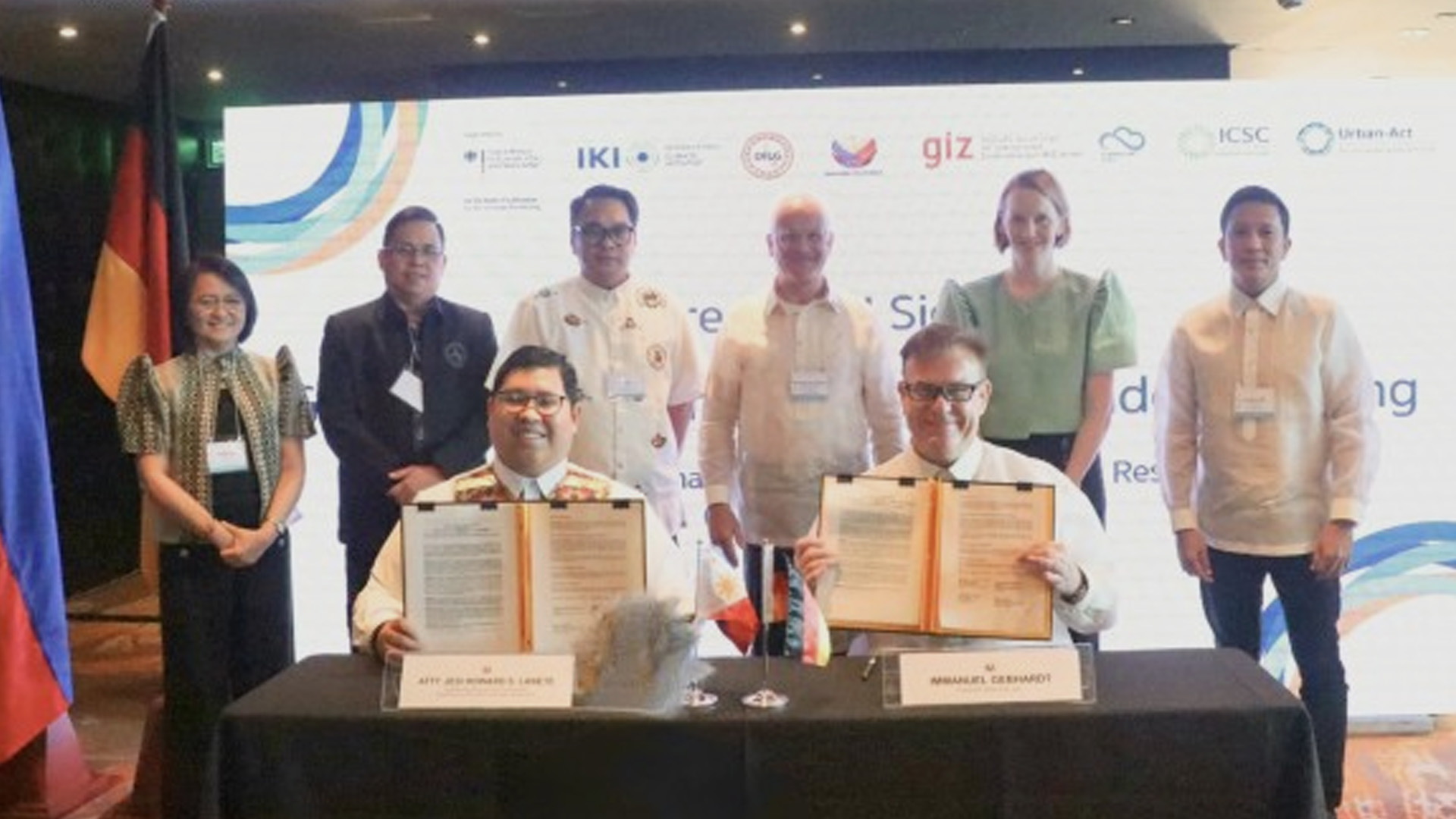The Department of the Interior and Local Government (DILG) and the Deutsche Gesellschaft für Internationale Zusammenarbeit (GIZ) GmbH have signed a memorandum of understanding (MOU) to implement a five-year program to empower Philippine cities to lead the way in sustainable, climate-smart urban development amid rising environmental challenges.
DILG Assistant Secretary for Local Government Jesi Howard Lanete and German Ambassador to the Philippines, Dr. Andreas Michael Pfaffernoschke signed the MOU in ceremonies held at Alfaland, Makati Place, Makati City last Aug. 29.
“The signing of the Integrated Urban Climate Action for Low-Carbon and Resilient Cities (Urban-Act) Project in the Philippines marks a significant milestone in advancing urban climate resilience nationwide,” the DILG said in a news release on Tuesday.
The partnership embodies the national government’s ongoing commitment to fostering climate-resilient communities in line with President Ferdinand R. Marcos Jr.’s vision of a future-ready, inclusive, and sustainable Bagong Pilipinas built on innovation and resilient governance.
Urban-Act supports the Philippines’ Nationally Determined Contributions (NDCs) under the Paris Agreement, and advances the goals of the 2030 Agenda for Sustainable Development.
Funded by the International Climate Initiative through the German Federal Ministry for Economic Affairs and Climate Action, Urban-Act forms part of a broader regional initiative spanning India, Thailand, China, and Indonesia.
The project focuses on enhancing the capacities of Philippine cities to mainstream climate change adaptation and mitigation into urban planning.
It promotes stronger policy coherence by integrating national climate policies into local strategies, ensuring tangible, community-level impact.
The DILG, as the main project partner, will oversee project management, ensure operational feasibility, financial accountability, deploy experts, and provide office support.
Key national government agency partners are the Department of Human Settlements and Urban Development (DHSUD) and the Department of Transportation (DOTr).
They will contribute to policy updates and development, technical services, cross-sectoral collaboration, and incentive frameworks to accelerate urban climate action.
Antipolo City (Rizal), Bacolod City (Negros Occidental), and Tagbilaran City (Bohol) have been identified as pilot areas where climate-responsive urban development plans will be crafted and tested. (PNA)






